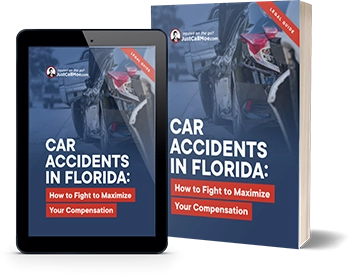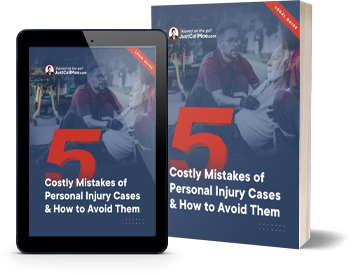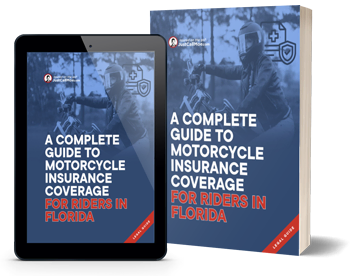So, you’ve weathered the storm, the winds have calmed down, and now you’re standing in your yard, looking at what used to be your fence, or maybe your roof, or your beloved inflatable flamingo. Welcome to post-hurricane Florida, where the skies may be blue again, but the path to getting back to normal could be a bit bumpy. Step one? Filing your insurance claim. Don’t worry, it’s not as scary as it sounds — and we’re here to walk you through it.
1. Take a Breath (and Some Photos)
First things first: take a deep breath. Seriously, you’ve just survived a hurricane! Now, channel your inner detective. Before you touch anything, document the damage. Grab your phone and start snapping pictures like you’re on a tropical vacation—except this time, your photos might actually save you some serious cash.
Pro tip: Make sure to take clear, close-up shots of all damaged areas—roof, windows, fences, your smashed patio furniture—whatever the storm hit. Remember: the faster you document and report, the quicker things will (hopefully) move.
2. Review Your Policy: Know What’s Covered
Here’s the part where you dust off that insurance policy you’ve been meaning to read but never did (don’t worry, you’re not alone). Now’s the time to get familiar with what’s covered and what’s not. Does your policy cover wind damage? What about flooding? And no, we’re not talking about the puddle in your driveway—we mean actual, house-soaked, water-everywhere flooding.
Keep in mind that Florida homeowners’ insurance typically doesn’t cover flood damage. For that, you’d need a separate flood insurance policy through the National Flood Insurance Program (NFIP). And if you don’t have flood insurance, well, it’s going to be a long conversation with your bank account.
Pro tip: Know the difference between wind damage and flood damage. Wind? Covered. Flood? Maybe not. Check your policies and brace for the deductible.
3. File Your Claim ASAP
Don’t put this off. You might think you have plenty of time, but procrastination here is not your friend. The sooner you file your claim, the sooner you can start the process of getting your life back to normal. Florida’s law does grant you some grace period for filing the claim from the date of the hurricane, but waiting can make things trickier, especially if damage worsens over time.
Here’s how to do it:
- Call your insurance company.
- Have your policy number handy.
- Provide details about the damage.
- Send them those photos we talked about.
Pro tip: Some insurance companies let you file claims online or through an app. Because if we’ve learned anything, it’s that post-hurricane Florida still has better tech support than most cable companies.
4. Temporary Repairs: Do What You Can, But Don’t Go Overboard
Once your claim is filed, you might be tempted to start fixing things right away. Hold your horses! You’re allowed to make temporary repairs to prevent further damage, but don’t go rebuilding your entire roof before an adjuster gets a look. Under Florida Statute 627.707, your insurer has the right to inspect your property before covering the costs of repairs, and if you’ve already done a full renovation, you might miss out on full compensation.
That being said, if there’s a gaping hole in your roof, feel free to slap a tarp on it. Just save the receipts for any temporary repairs. They might be reimbursable!
Pro tip: Avoid shady contractors who show up out of nowhere offering to “fix everything” for cheap. If something sounds too good to be true, it probably is. Florida is famous for its post-hurricane scams. Protect yourself by checking licenses and getting everything in writing.
5. Meet the Adjuster: Showtime
Once your claim is in, the insurance company will send out an adjuster to assess the damage. This is the person who will decide how much your insurer will pay out, so it’s kind of a big deal.
When they come by, make sure you:
- Walk them through the property.
- Show them all the damage (even the stuff that might seem minor).
- Hand over those receipts for temporary repairs.
It’s also a good idea to have a contractor estimate ready, just in case. That way, you’ve got a second opinion on how much the repairs will really cost.
Pro tip: Be polite but assertive. Adjusters are just doing their job, but it’s your job to make sure they don’t miss anything. Be thorough, and don’t be afraid to ask questions.
6. Stay on Top of It: The Waiting Game
Once the adjuster leaves, you might be tempted to kick back and relax, but stay on top of your claim. Call your insurance company to check in on progress. According to Florida law, your insurance company has 7 Calendar days to acknowledge your claim and 90 days to pay or deny it (barring any unusual circumstances). So, while patience is a virtue, a little persistence can’t hurt.
Pro tip: Keep a log of every interaction you have with your insurance company, including the names of the people you speak to and the dates of your conversations. If things drag on, you’ll be glad to have a paper trail.
7. Don’t Settle Too Quickly: Patience Pays Off
Once your insurer offers you a settlement, don’t feel pressured to accept it right away. Take time to review the offer and compare it with the estimates you’ve gathered from contractors. If the settlement seems too low, you have the right to negotiate.
And if things really go south (like if your insurer denies your claim or lowballs you), don’t be afraid to seek legal help. Florida Statute 627.428 allows policyholders to recover attorney fees if they win a lawsuit against their insurer, so if you need to lawyer up, it won’t necessarily break the bank.
The Bottom Line
Understanding the insurance claims process after a hurricane can feel like its own storm, but with a little patience and persistence, you’ll get through it. Just remember: document the damage, file your claim ASAP, and don’t be afraid to ask for help when needed. After all, the only thing more unpredictable than Florida’s weather is the insurance process—but with these steps, you’ll be ready for anything that comes your way. Stay safe, stay smart, and let’s get your life back on track!
And remember, when the storm clears and it’s time to file your claim, JustCallMoe is here to guide you every step of the way!

 (866) 225-5663
(866) 225-5663




 100% Secure and Confidential
100% Secure and Confidential